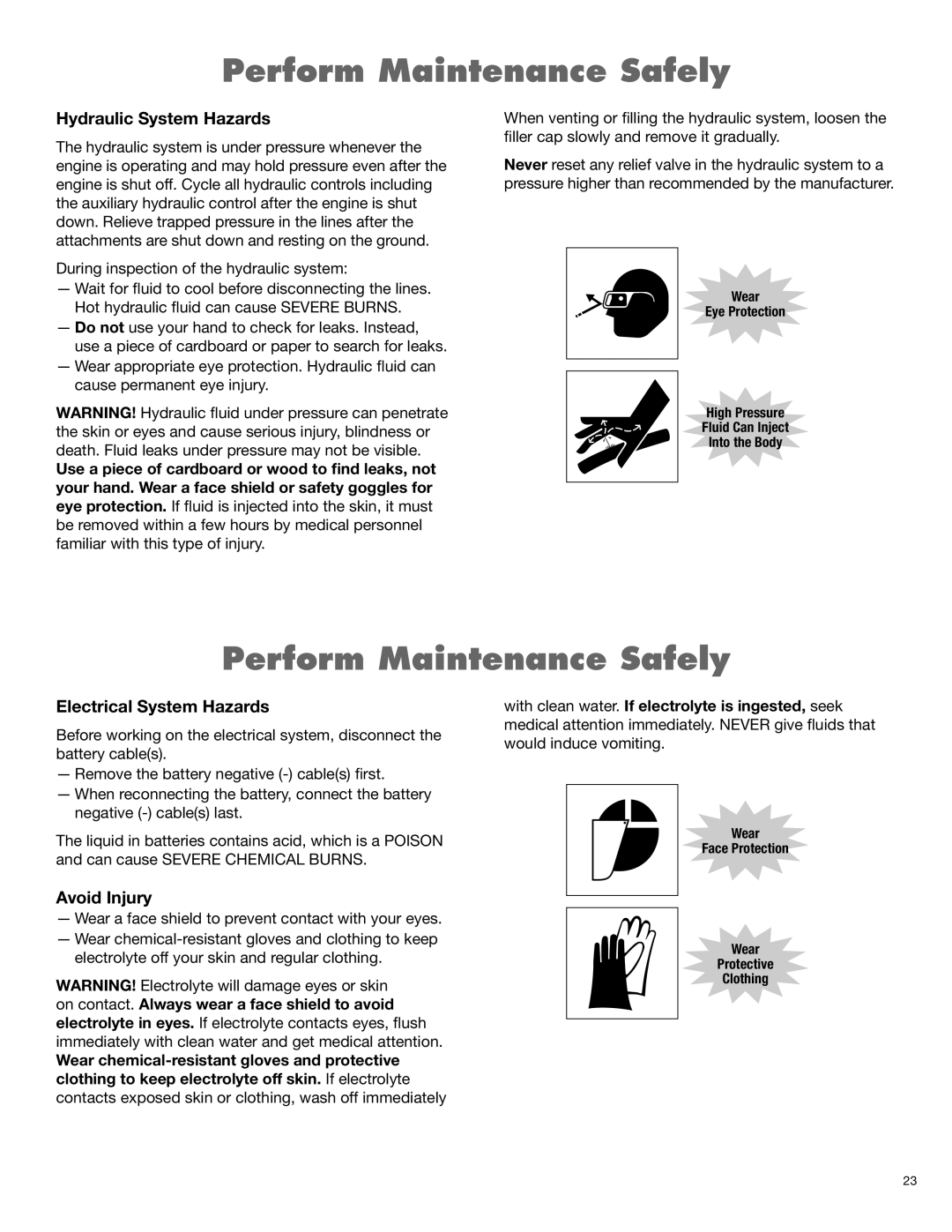
Perform Maintenance Safely
Hydraulic System Hazards
The hydraulic system is under pressure whenever the engine is operating and may hold pressure even after the engine is shut off. Cycle all hydraulic controls including the auxiliary hydraulic control after the engine is shut down. Relieve trapped pressure in the lines after the attachments are shut down and resting on the ground.
During inspection of the hydraulic system:
—Wait for fluid to cool before disconnecting the lines. Hot hydraulic fluid can cause SEVERE BURNS.
—Do not use your hand to check for leaks. Instead, use a piece of cardboard or paper to search for leaks.
—Wear appropriate eye protection. Hydraulic fluid can cause permanent eye injury.
WARNING! Hydraulic fluid under pressure can penetrate the skin or eyes and cause serious injury, blindness or death. Fluid leaks under pressure may not be visible.
Use a piece of cardboard or wood to find leaks, not your hand. Wear a face shield or safety goggles for eye protection. If fluid is injected into the skin, it must be removed within a few hours by medical personnel familiar with this type of injury.
When venting or filling the hydraulic system, loosen the filler cap slowly and remove it gradually.
Never reset any relief valve in the hydraulic system to a pressure higher than recommended by the manufacturer.
Wear
Eye Protection
High Pressure
Fluid Can Inject
Into the Body
Perform Maintenance Safely
Electrical System Hazards
Before working on the electrical system, disconnect the battery cable(s).
—Remove the battery negative
—When reconnecting the battery, connect the battery negative
The liquid in batteries contains acid, which is a POISON and can cause SEVERE CHEMICAL BURNS.
Avoid Injury
—Wear a face shield to prevent contact with your eyes.
—Wear
WARNING! Electrolyte will damage eyes or skin on contact. Always wear a face shield to avoid electrolyte in eyes. If electrolyte contacts eyes, flush immediately with clean water and get medical attention.
Wear
with clean water. If electrolyte is ingested, seek medical attention immediately. NEVER give fluids that would induce vomiting.
Wear
Face Protection
Wear
Protective
Clothing
23
